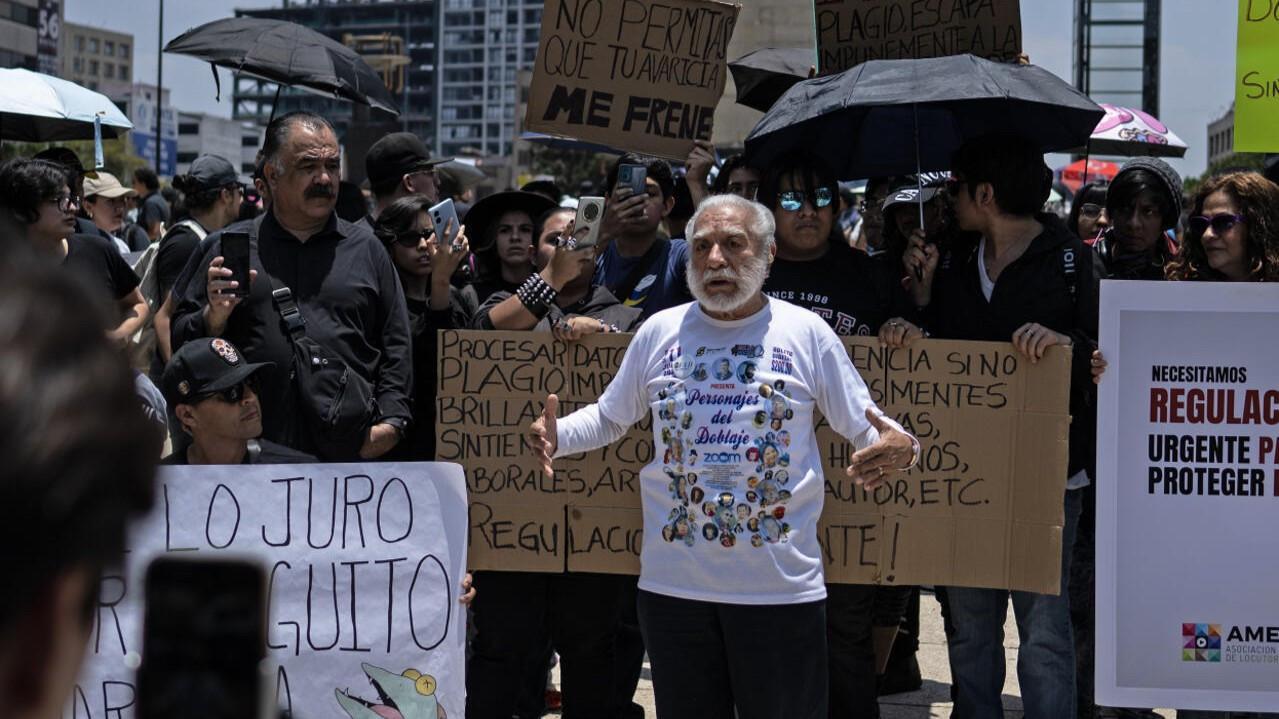
Mexican actors protested the growing threat artificial intelligence poses to their industry, calling on July 13 for better regulations to prevent voice cloning without consent.
The rise of AI was a key issue in Hollywood's 2023 actors and writers' strikes, as creatives feared studios would use the technology to replace paid content.
Last year, actor Scarlett Johansson accused tech firm OpenAI of imitating her voice for one of their chatbots. The company responded by modifying the tone.
From the Monument to the Revolution in downtown Mexico City, dozens of audiovisual professionals held signs, including ones that read: "I don't want to be replaced by AI."
"We are requesting that the voice be considered a biometric so that it is protected," Lili Barba, president of the Mexican Association of Commercial Announcements, told AFP.
The 52-year-old actress, known for voicing Disney's Daisy Duck, referred to a video by the National Electoral Institute (INE) on TikTok.
Released following the judicial elections on June 1, the video used the voice of the late actor Jose Lavat, famous for the Spanish dubbing of stars like Robert De Niro and Al Pacino, to thank citizens for voting.
According to local media, Lavat's voice was used without his family's consent.
Actress Harumi Nishizawa, 35, said dubbing a character is "like embroidery."
If no legislation is passed, she said voice dubbing done by humans "will disappear," at the expense of millions of artists' jobs.